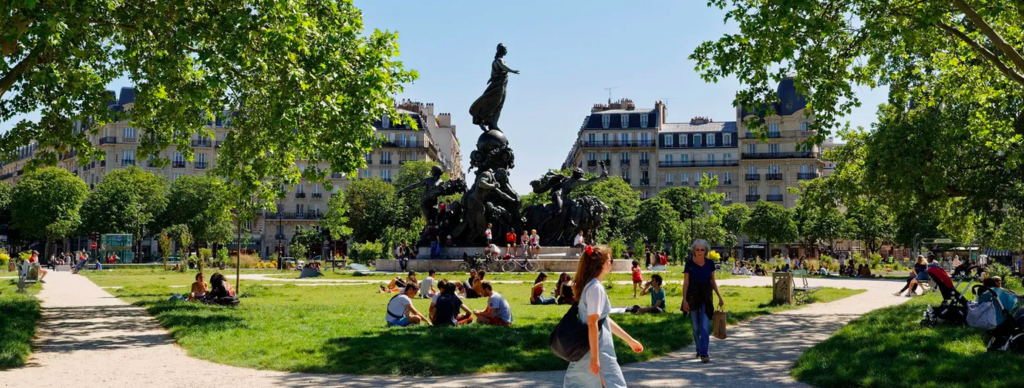Valuation of residential real estate was often based on a vibrant neighborhood where lots of things were happening. The mantra was location, location and location. Partly because cities intensified and spread at the same time, emphasis shifted to speed or mobility. You could live where you wanted, and retail things and services could be provided wherever it was convenient and affordable. The challenge for citizens and city planners was to figure out how to get people from places of living to places of consuming as quick as possible, often by motorized transport.
Now we are entering the 15 minute city, a refinement of location, location, location.. The term is used as a public planning metric to describe a city where residents can reach a form of almost everything they need within a quarter of a hour by foot or bike. The focus is on access not mobility or speed. The critical rationale is that what is important to most peoples’ lives is available without use of a car, thereby saving greenhouse gas emissions and reducing climate breakdown.

The 15-minute city allows for travel among housing, offices, restaurants, parks, hospitals and cultural venues, while fulfilling six social functions: living, working, supplying, caring, learning and enjoying.
What is considered “important” to be within any 15-minute of course can vary greatly. Not everybody may be able to be within 15 minutes, by walking or biking, of a hospital or of a nightclub.
Some further ideas to explore on the 15 Minute City:
What would you consider vital for your 15 minute city?
What would constitute an open, green space, and is there any within your 15 minute city?
Is a coffee shop a necessary facility within your 15 minute city? What about a public library?
How do you deal with socio-economic inequality in the 15 minute city?
Sources:
Peter Yeung, “How ’15-minute cities’ will change the way we socialize,” BBC (4 Jan 2021. bbc.in/3JPdCJ8
Andres Duany and Robert Struteville, “Defining the 15-minute city,” Public Square: A CNU Journal (8 Feb 2021) bit.ly/3wQlxlZ
Dan Luscher, “Access, not mobility: It’s not about how fast you can go,” :15 City (13 July 2020) bit.ly/3Nr8nSj
Dan Luscher, “The 15-minute city as marketing slogan,”:15 City (23 Sept 2021). bit.ly/3iBuGq4


No comments yet, add your own below